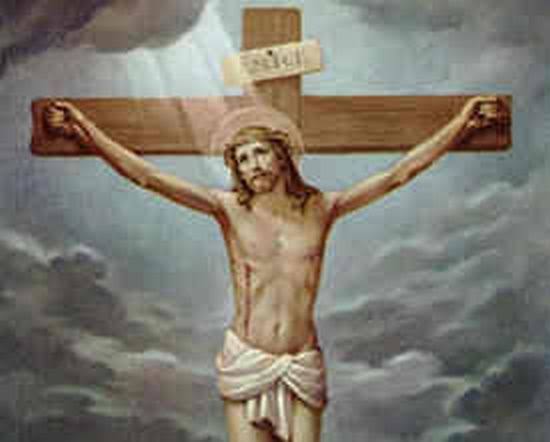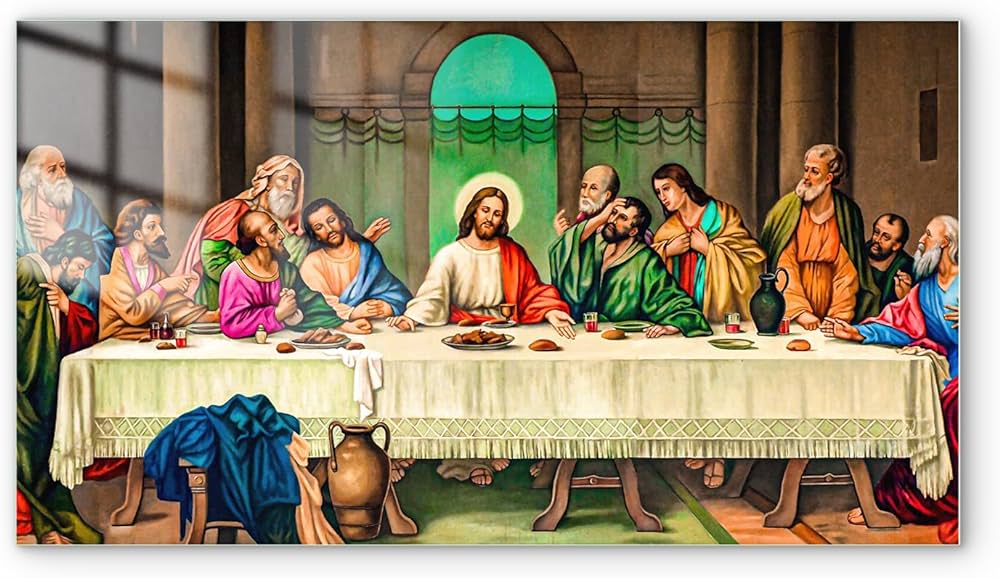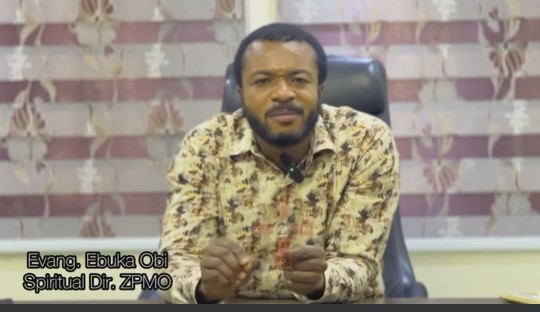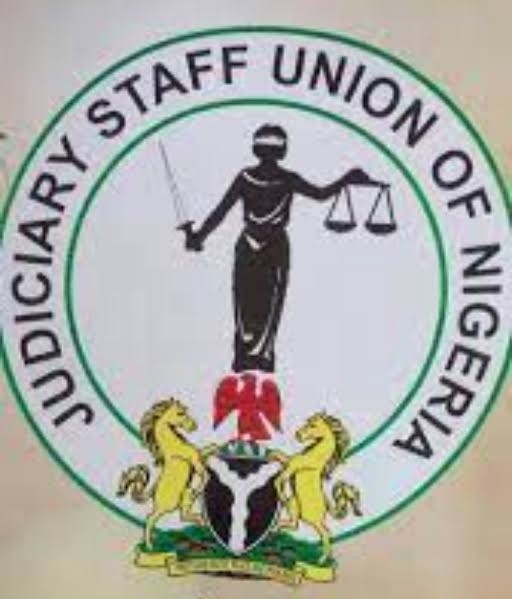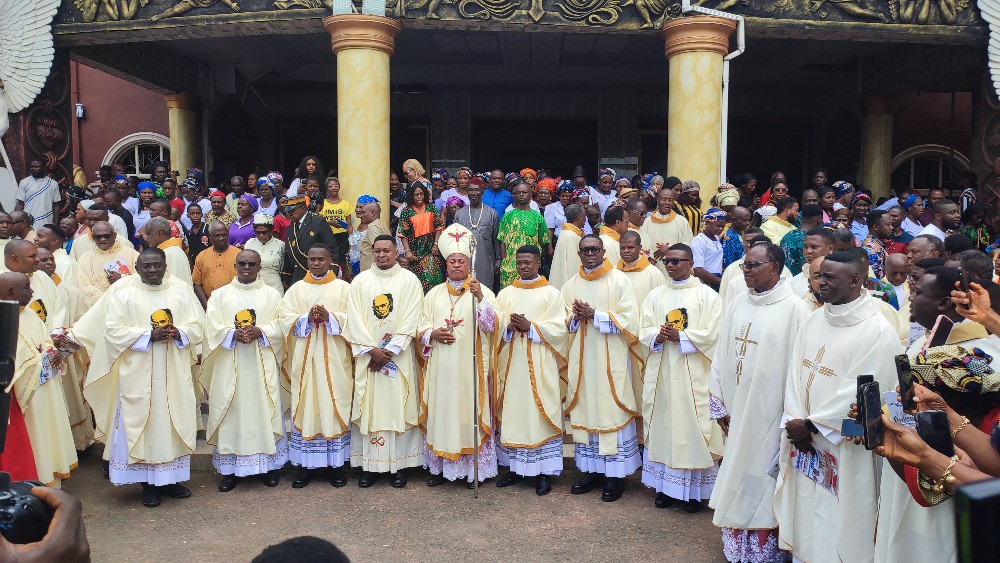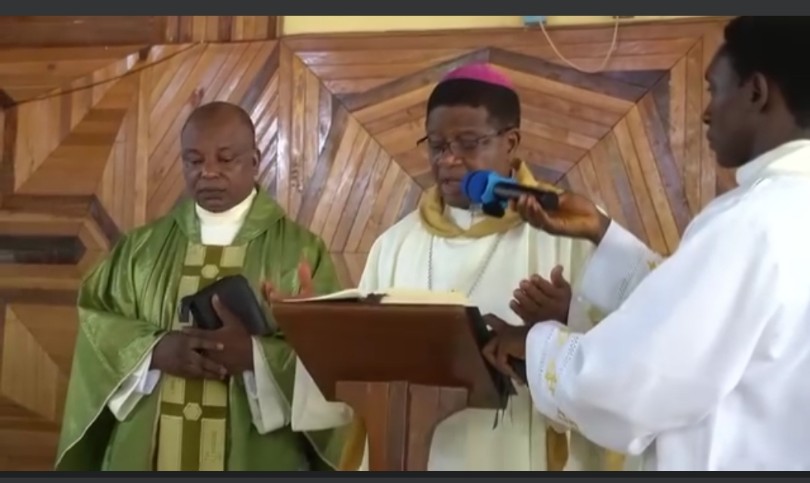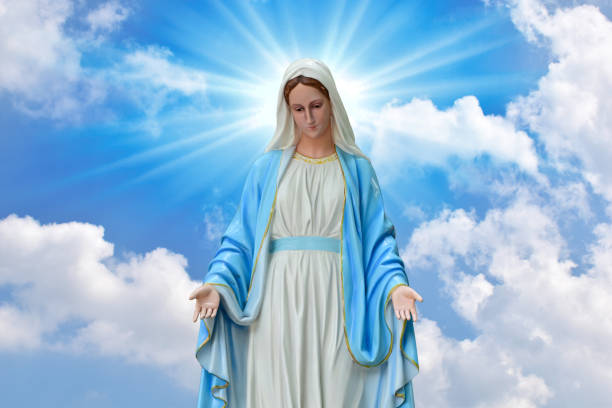
The humility of the Cross: Jesus' love and saving of humanity on Good Friday
* From Last Supper to crucifixion, Jesus showed love, humility, forgiveness
Friday Mar 29, 2024 19:18 pm
By Onyeka Uwakwe
Ekwulobia,
Commentary
Good Friday, or Holy Friday is a Christian holy day observing the crucifixion of Jesus and his death at Calvary. Good Friday is within the Holy Week, as part of the Paschal Triduum.
The Paschal Triduum or Easter Triduum, Holy Triduum, is the period of three days that begins with the liturgy on the evening of Maundy Thursday and reaches the Easter Vigil, and closes with evening prayer on Easter.
Jesus understood that his life would be sacrificed for the sins of man. Philippians 2:8 says, "And being found in appearance as a man, he humbled himself and became obedient to death-- even death on a cross!"
The Last Supper is evidently the last major ceremony performed by Jesus before his crucifixion. Note that the Last Supper was in progress when Jesus began washing the feet of the disciples (John 13:1–17) which occurred in the upper room. The failure of the desciples to observe this important hygienic practice ahead of the meal was spotted by Jesus, and he quickly filled the gap by washing the feet of his subordinates. Recall that by now, there was also a dispute among apostles, as to which of them should be considered the greatest (Luke 22:24).
The feast of the Eucharist and washing of feet are inseparable, says Bishop Godfrey Onah in a Holy Week homily. Also, the two are considered major events in the story of the death of Jesus on the Cross.
The Last Supper
The Last Supper and washing of feet are of great significance which we will identify shortly.
The Last Supper foreshadowed Jesus’ sacrifice on the Cross. Recall the statements during the meal, when Jesus broke bread and shared wine with his disciples. The Scriptures tell us that during the meal, Jesus took bread, blessed and broke it. Then, before giving it to his disciples, He said, “This is my body, which is given for you. Do this in remembrance of me.” He then took a cup of wine, blessed and gave it to His disciples, saying, “This cup is the new covenant in my blood, which is poured out for you.”
By referring to the bread and wine as jis body and blood, Jesus symbolically used the words and are perfectly understood to be a prediction of Jesus’ upcoming death and his sacrifice on the cross for the salvation of humanity. The prediction of sacrifice was also a pointer to immeasurable show of love so that humanity will be saved.
By referring to the bread and wine as his body and blood, Jesus was symbolically offering Himself as a sacrifice for the sins of humanity.
For Christians, Easter represents the ultimate liberation from sin and death through the sacrifice of Jesus on the cross.
The Last Supper, being a Passover meal, is believed to have bridged the old covenant of Passover and the new covenant of Christ’s sacrifice. The new convenant is constantly celebrated during Eucharist.
Passover meal commemorates the Jewish people’s liberation from slavery in Egypt. For a Passover meal, a lamb is sacrificed and eaten as a reminder of the lamb’s blood used to mark the doors of Jewish homes during the tenth plague, when the firstborn sons of Egypt were killed. This allowed the Jewish people to escape the plague. “And the blood shall be to you for a token upon the houses where ye are: and when I see the blood, I will pass over you, and there shall no plague be upon you to destroy you, when I smite the land of Egypt.” Exodus 12:13
The washing of feet has a major significance -it was a display of his humility and servanthood. Jesus’ attitude was in contrast to that of the disciples, who had recently been arguing among themselves as to which of them was the greatest (Luke 22:24).
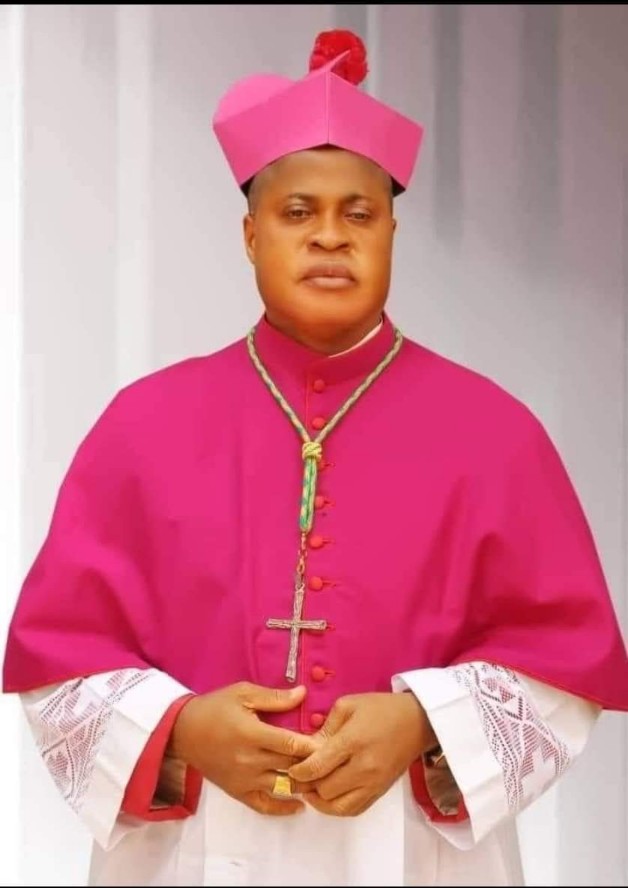
His Eminence, Cardinal Peter Ebere Okpaleke, Bishop of Catholic Diocese, Ekwulobia
Lessons on the Road to Golgotha
The crucifixion of Jesus is recorded in the New Testament books, known as the Gospels - Matthew, Mark, Luke, and John.
Jesus prophesied of his death in Matthew and "from that time on Jesus began to explain to his disciples that he must go to Jerusalem and suffer many things at the hands of the elders, the chief priests and the teachers of the law and that he must be killed and on the third day be raised to life" Matthew 16:21. Question: How often do Christians make sacrifices for the common good of others?
Following his teachings and miracles, many Jews believed in Jesus as the Messiah, the Son of God. However, Jewish leaders feared Jesus because of his growing followers, condered a danger to earthly authorities especially that of Roman empire. Question: How often do worldly leaders get afraid and willing to sacrifice powerful but genuine religious leaders or prophets?
This, with the active connivance of Judas Iscariot, Roman soldiers arrested Jesus, put him on trial for claiming to be the king of the Jews. Consequently, according to Roman law, the punishment for rebellion against the king was death by crucifixion. Question: How often do Christians betray their long time allies for percuniary motives? Judas did the same!
On Golgotha’s hill, two burly Roman soldiers hold Jesus’ arms to the rough wooden beam. Another holds his legs. The beams are being reused and so they are already stained with dried blood. Yet, Jesus remained silent in the. face of total humiliation.Question: How often do Christians endure in the light humiliation?
In a remarkable lesson of forgiveness, Jesus forgave his detractors. Jesus said, “Father, forgive them, for they do not know what they are doing.” And they divided up his clothes by casting lots (Luke 23:34). Question: What has happened to love and forgiveness among Christians?
As a result, Jesus died on the cross. And suddenly in the temple the thick veil hanging in the Holy Place was ripped in two! Then Jesus cried out with a loud voice, “Father, I surrender my Spirit into your hands.” And he took his last breath and died (Luke 23:45-46).
(These series will be concluded on Sunday)
Read also
👇👇👇👇
From hosanna to crucify him: Lessons from Passion account for Palm Sunday
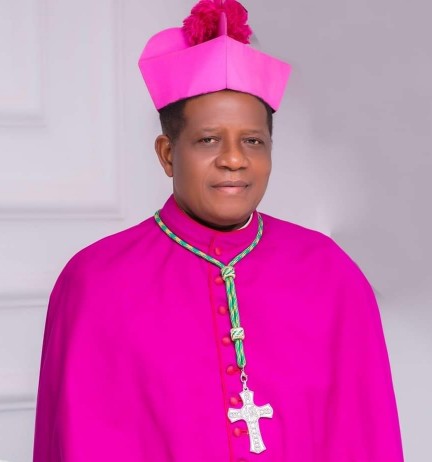
Bishop Godfrey I. Onah, Bishop, Catholic Diocese of Nsukka
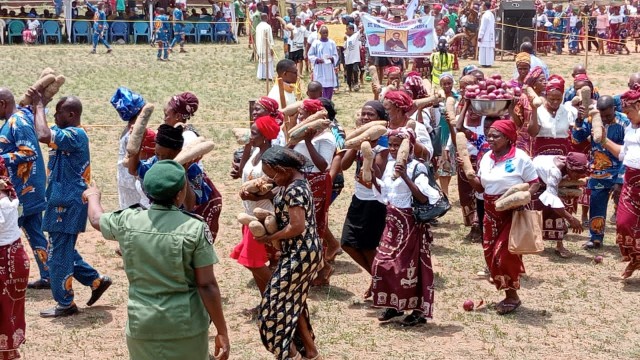
Scene from Cathedraticum at Achina, Ekwulobia Diocese
Stories from the same author

News
Tony Oneweek set to perform in the UK from July 13.
Gyration master to thrill fans in Bournemouth, Glasgow, Basildon, Manchester, others
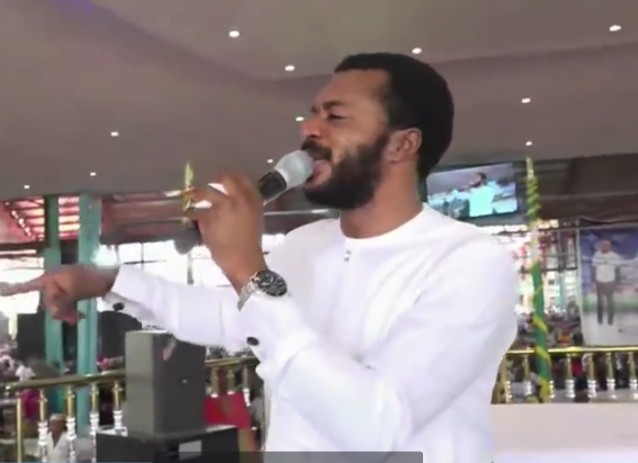
News
If you don't want reactions, mind your actions, Evang Ebuka Obi tells detractors .
Evang Obi says he remains a Catholic
All Headlines
Categories
Return
Recent Stories

News
Unizik new Acting VC, Prof Carol Arinze-Umobi assumes duty, promises open-door administration.
Prof Ikechebelu reverts to office as DVC Admin
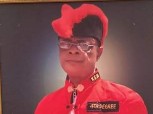
Society News
Chukwuemeka Odumegwu Ojukwu University staff, friends bid farewell to late legal icon, Sir Ignatius Obijiaku .

Education
Governing Council Federal Polytechnic, Nekede on courtesy visit to Imo State Governor, Hope Uzodinma.
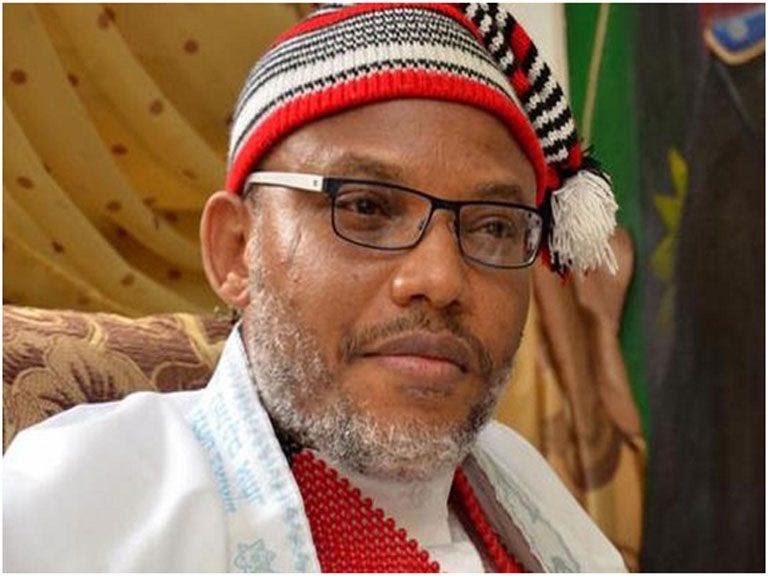
Cover Story
Labour Party caucus of southeast lawmakers asks President Tinubu to release Nnamdi Kanu.
Goup calls on Southeast governors to grant financial autonomy to state Houses of Assembly

Sports
John Cena announces his retirement from WWE after 22 years.
John Cena to step away from wrestling next year after a retirement tour

News
Tony Oneweek set to perform in the UK from July 13.
Gyration master to thrill fans in Bournemouth, Glasgow, Basildon, Manchester, others
Most Read Stories

Sports
Wrestlemania XL: End of era as Cody Rhodes defeats Roman Reigns, finishes the story.
Roman Reigns was Undisputed WWE Universal Champion for 1316 days

News
Dennis Junior Seminary Mbieri Old Boys hold AGM, give award to Nwabueze, others .
Pharm Chris Ukachukwu delivers lecture
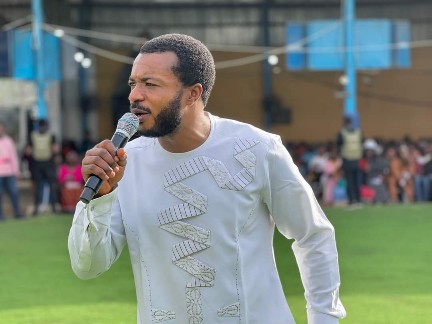
Cover Stories
Worship, eat and live: 100 caterers cook 10,000 bags of rice, 5,000 cows for Evang. Ebuka Obi, brother's birthday .

Sports
SummerSlam 2023: Cody Rhodes defeats Lesnar | Roman Reigns beats Jey Uso.
Iyo Sky cashes in Money in the Bank contract to win women’s title
Seth Rollins defeats Finn Balor
Good Friday, or Holy Friday is a Christian holy day observing the crucifixion of Jesus and his death at Calvary. Good Friday is within the Holy Week, as part of the Paschal Triduum.
The Paschal Triduum or Easter Triduum, Holy Triduum, is the period of three days that begins with the liturgy on the evening of Maundy Thursday and reaches the Easter Vigil, and closes with evening prayer on Easter.
Jesus understood that his life would be sacrificed for the sins of man. Philippians 2:8 says, "And being found in appearance as a man, he humbled himself and became obedient to death-- even death on a cross!"
The Last Supper is evidently the last major ceremony performed by Jesus before his crucifixion. Note that the Last Supper was in progress when Jesus began washing the feet of the disciples (John 13:1–17) which occurred in the upper room. The failure of the desciples to observe this important hygienic practice ahead of the meal was spotted by Jesus, and he quickly filled the gap by washing the feet of his subordinates. Recall that by now, there was also a dispute among apostles, as to which of them should be considered the greatest (Luke 22:24).
The feast of the Eucharist and washing of feet are inseparable, says Bishop Godfrey Onah in a Holy Week homily. Also, the two are considered major events in the story of the death of Jesus on the Cross.
The Last Supper
The Last Supper and washing of feet are of great significance which we will identify shortly.
The Last Supper foreshadowed Jesus’ sacrifice on the Cross. Recall the statements during the meal, when Jesus broke bread and shared wine with his disciples. The Scriptures tell us that during the meal, Jesus took bread, blessed and broke it. Then, before giving it to his disciples, He said, “This is my body, which is given for you. Do this in remembrance of me.” He then took a cup of wine, blessed and gave it to His disciples, saying, “This cup is the new covenant in my blood, which is poured out for you.”
By referring to the bread and wine as jis body and blood, Jesus symbolically used the words and are perfectly understood to be a prediction of Jesus’ upcoming death and his sacrifice on the cross for the salvation of humanity. The prediction of sacrifice was also a pointer to immeasurable show of love so that humanity will be saved.
By referring to the bread and wine as his body and blood, Jesus was symbolically offering Himself as a sacrifice for the sins of humanity.
For Christians, Easter represents the ultimate liberation from sin and death through the sacrifice of Jesus on the cross.
The Last Supper, being a Passover meal, is believed to have bridged the old covenant of Passover and the new covenant of Christ’s sacrifice. The new convenant is constantly celebrated during Eucharist.
Passover meal commemorates the Jewish people’s liberation from slavery in Egypt. For a Passover meal, a lamb is sacrificed and eaten as a reminder of the lamb’s blood used to mark the doors of Jewish homes during the tenth plague, when the firstborn sons of Egypt were killed. This allowed the Jewish people to escape the plague. “And the blood shall be to you for a token upon the houses where ye are: and when I see the blood, I will pass over you, and there shall no plague be upon you to destroy you, when I smite the land of Egypt.” Exodus 12:13
The washing of feet has a major significance -it was a display of his humility and servanthood. Jesus’ attitude was in contrast to that of the disciples, who had recently been arguing among themselves as to which of them was the greatest (Luke 22:24).

His Eminence, Cardinal Peter Ebere Okpaleke, Bishop of Catholic Diocese, Ekwulobia
Lessons on the Road to Golgotha
The crucifixion of Jesus is recorded in the New Testament books, known as the Gospels - Matthew, Mark, Luke, and John.
Jesus prophesied of his death in Matthew and "from that time on Jesus began to explain to his disciples that he must go to Jerusalem and suffer many things at the hands of the elders, the chief priests and the teachers of the law and that he must be killed and on the third day be raised to life" Matthew 16:21. Question: How often do Christians make sacrifices for the common good of others?
Following his teachings and miracles, many Jews believed in Jesus as the Messiah, the Son of God. However, Jewish leaders feared Jesus because of his growing followers, condered a danger to earthly authorities especially that of Roman empire. Question: How often do worldly leaders get afraid and willing to sacrifice powerful but genuine religious leaders or prophets?
This, with the active connivance of Judas Iscariot, Roman soldiers arrested Jesus, put him on trial for claiming to be the king of the Jews. Consequently, according to Roman law, the punishment for rebellion against the king was death by crucifixion. Question: How often do Christians betray their long time allies for percuniary motives? Judas did the same!
On Golgotha’s hill, two burly Roman soldiers hold Jesus’ arms to the rough wooden beam. Another holds his legs. The beams are being reused and so they are already stained with dried blood. Yet, Jesus remained silent in the. face of total humiliation.Question: How often do Christians endure in the light humiliation?
In a remarkable lesson of forgiveness, Jesus forgave his detractors. Jesus said, “Father, forgive them, for they do not know what they are doing.” And they divided up his clothes by casting lots (Luke 23:34). Question: What has happened to love and forgiveness among Christians?
As a result, Jesus died on the cross. And suddenly in the temple the thick veil hanging in the Holy Place was ripped in two! Then Jesus cried out with a loud voice, “Father, I surrender my Spirit into your hands.” And he took his last breath and died (Luke 23:45-46).
(These series will be concluded on Sunday)
Read also
👇👇👇👇
From hosanna to crucify him: Lessons from Passion account for Palm Sunday

Bishop Godfrey I. Onah, Bishop, Catholic Diocese of Nsukka

Scene from Cathedraticum at Achina, Ekwulobia Diocese
Stories from the same author

|
News Tony Oneweek set to perform in the UK from July 13. Gyration master to thrill fans in Bournemouth, Glasgow, Basildon, Manchester, others |

|
News If you don't want reactions, mind your actions, Evang Ebuka Obi tells detractors . Evang Obi says he remains a Catholic |
All Headlines Categories Return
Recent Stories

|
News Unizik new Acting VC, Prof Carol Arinze-Umobi assumes duty, promises open-door administration. Prof Ikechebelu reverts to office as DVC Admin |

|
Society News Chukwuemeka Odumegwu Ojukwu University staff, friends bid farewell to late legal icon, Sir Ignatius Obijiaku . |

|
Education Governing Council Federal Polytechnic, Nekede on courtesy visit to Imo State Governor, Hope Uzodinma. |

|
Cover Story Labour Party caucus of southeast lawmakers asks President Tinubu to release Nnamdi Kanu. Goup calls on Southeast governors to grant financial autonomy to state Houses of Assembly |

|
Sports John Cena announces his retirement from WWE after 22 years. John Cena to step away from wrestling next year after a retirement tour |

|
News Tony Oneweek set to perform in the UK from July 13. Gyration master to thrill fans in Bournemouth, Glasgow, Basildon, Manchester, others |
Most Read Stories

|
Sports Wrestlemania XL: End of era as Cody Rhodes defeats Roman Reigns, finishes the story. Roman Reigns was Undisputed WWE Universal Champion for 1316 days |

|
News Dennis Junior Seminary Mbieri Old Boys hold AGM, give award to Nwabueze, others . Pharm Chris Ukachukwu delivers lecture |

|
Cover Stories Worship, eat and live: 100 caterers cook 10,000 bags of rice, 5,000 cows for Evang. Ebuka Obi, brother's birthday . |

|
Sports SummerSlam 2023: Cody Rhodes defeats Lesnar | Roman Reigns beats Jey Uso. Iyo Sky cashes in Money in the Bank contract to win women’s title Seth Rollins defeats Finn Balor |
